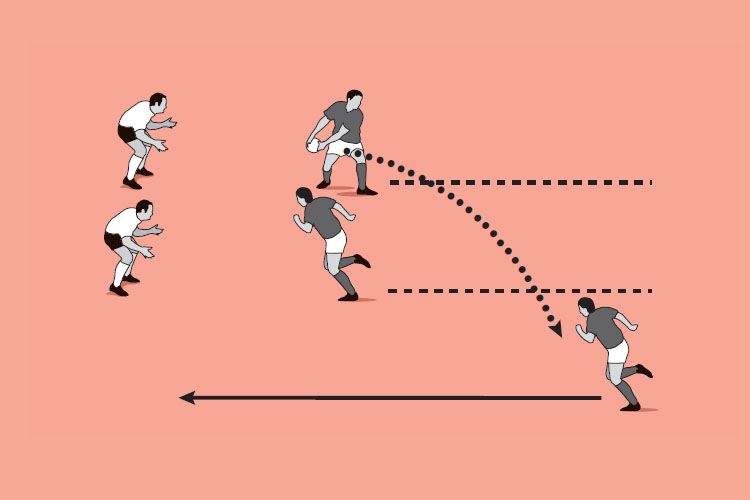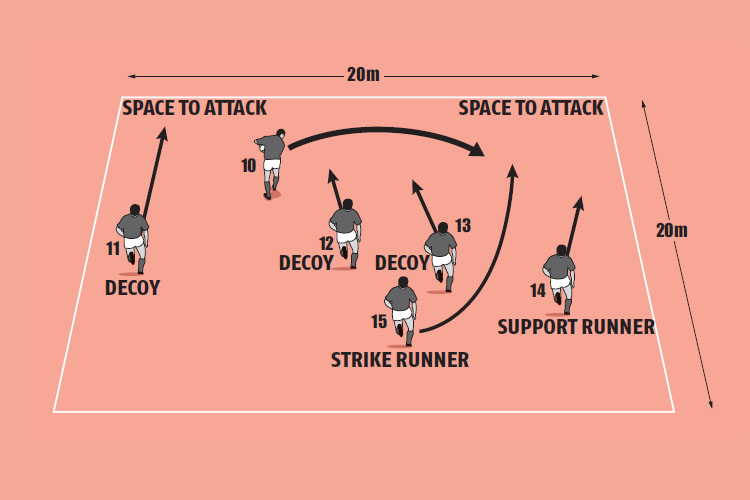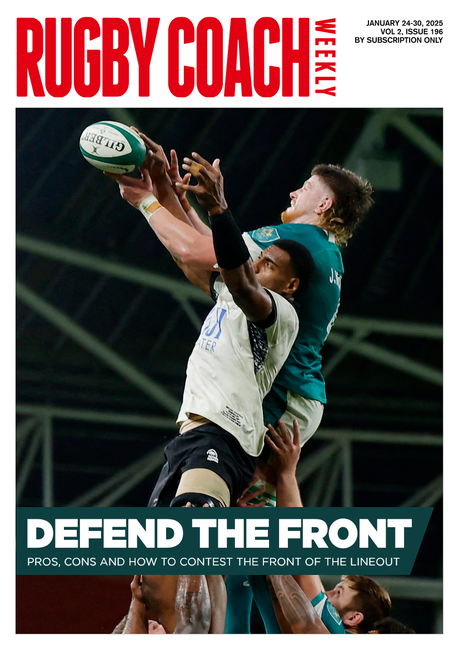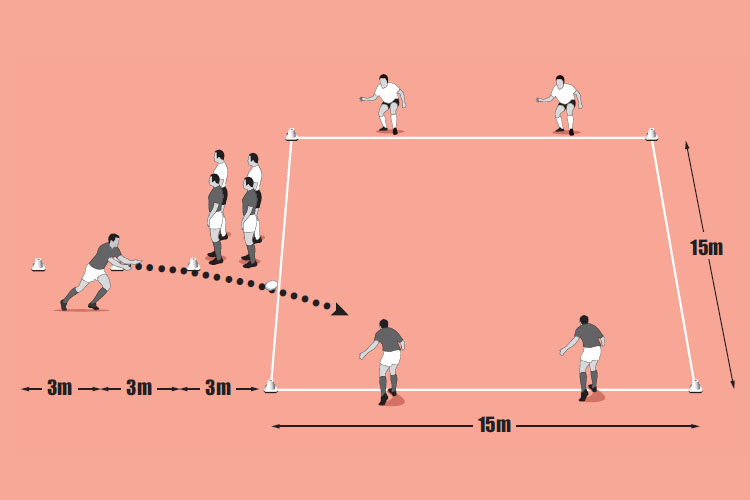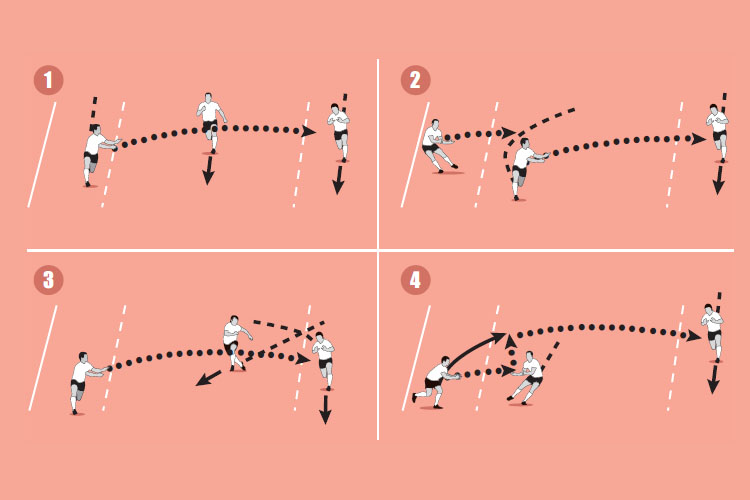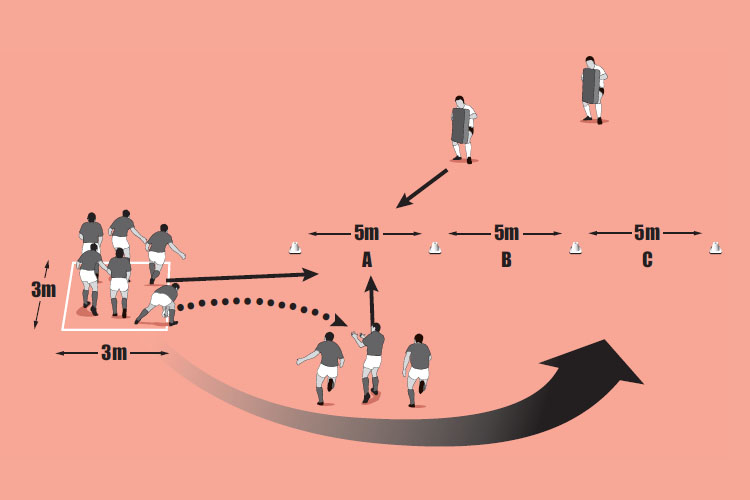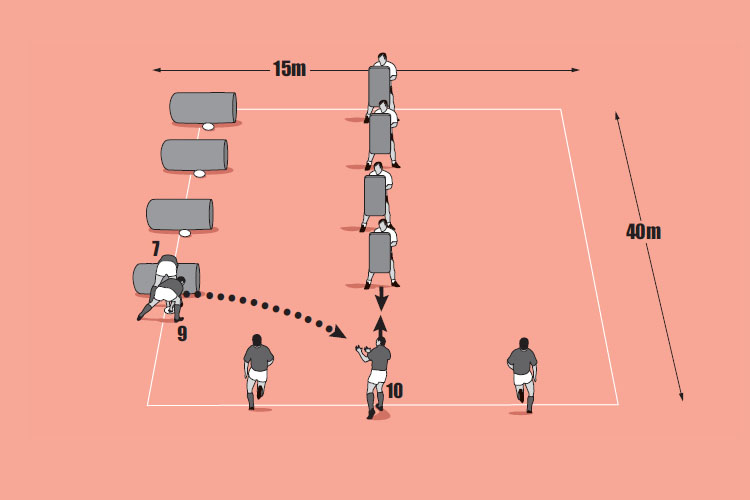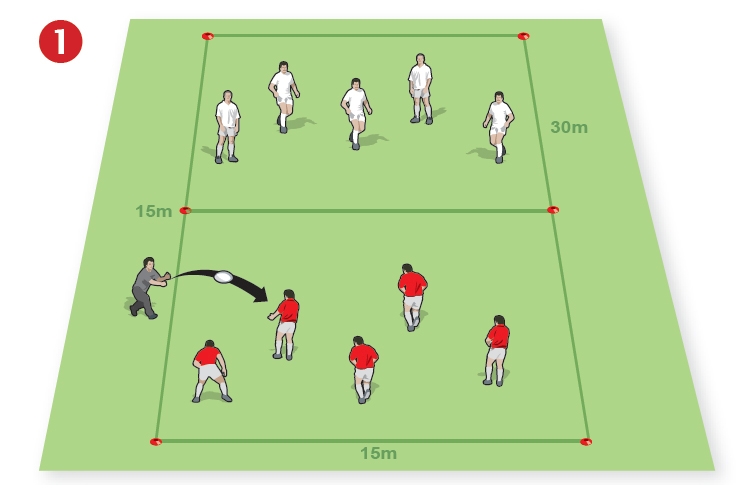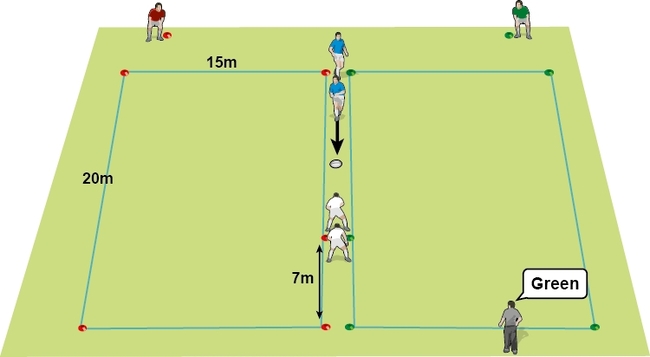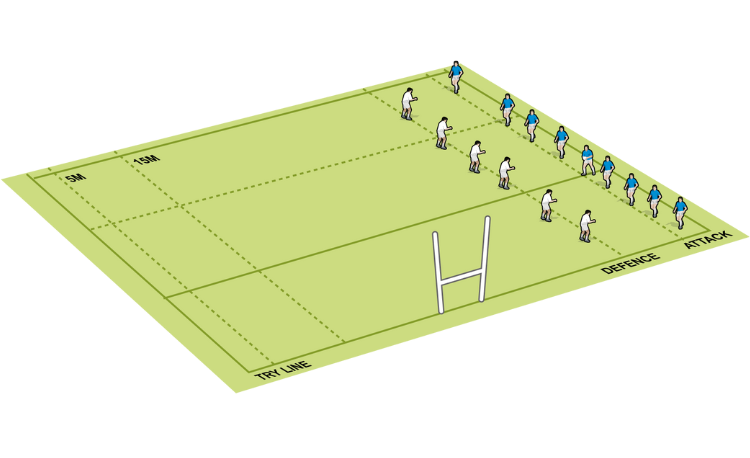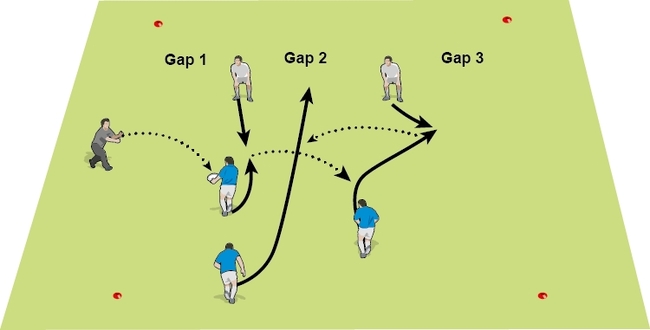Become the perfect decoy
A strike runner often makes his break because a decoy runner has drawn the defender. Decoy runners need to be credible and available to receive the pass. This session works on developing moves using decoy runners.
A strike runner often makes his break because a decoy runner has drawn the defender. Decoy runners need to be credible and available to receive the pass. This session works on developing moves using decoy runners.
Warm up time: 7-10
Session time: 10-12
Development time: 10-15
Game time: 10-15
Warm down time: 7-10
What to think about
Decoy players must look as though they may receive the ball. To achieve this, tell the players they are all decoys and all strike runners. The first receiver chooses who to give the ball to.
set-up
- Move the ball to the strike player as quickly as possible while moving forward at pace. Start as simply as possible then increase levels of difficulty (see picture 1).
- Run at angles to create space for the receiver.
- Look as though you are going to get the ball.
- Everyone call for the ball apart from the strike player.
What you get your players to do
Work in groups of six or seven in a20m square. Players start in a normal attacking alignment. Nominate one or two different spaces to attack (see picture 2). As the 10 moves with the ball, all the players move. Only one player becomes the strike runner and so after being decoys, players must change their role and support. In picture 2, 15 is the strike player, with 11, 12 and 13 all decoys. 14 is the immediate support player.
Development
Add defenders, gradually increasing their number. Let the players come up with their own ideas of decoys. Use questioning to determine what they are actually trying to do as regards moving the defence and creating space, then try it out (see picture 3). Don’t just use players in the same position. Move them around to experience the different roles.
Game situation
Set up a conditioned game of 8v8 on a 40m x 20m pitch. Begin by conditioning it so one team always has the ball. The attacking team is given several attempts to beat the defence, who can defend but must leave the ball alone in the tackle. In each attack everyone moves so there are several options and decoy runners.
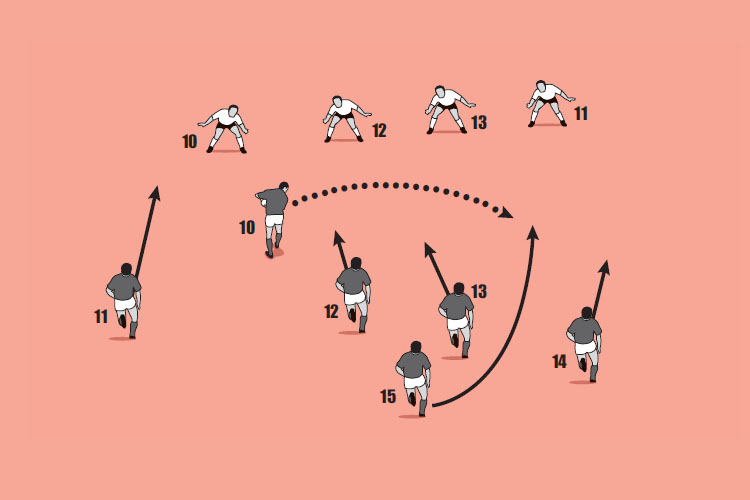
What to call out
- “Go forward then pass”
- “Call for the ball”
- “Take the ball at full pace”
- “Decoy, then support”
- “Weight your pass”
Newsletter Sign Up
Coaches Testimonials

Gerald Kearney, Downtown Las Vegas Soccer Club

Paul Butler, Florida, USA

Rick Shields, Springboro, USA

Tony Green, Pierrefonds Titans, Quebec, Canada
Subscribe Today
Be a more effective, more successful rugby coach
In a recent survey 89% of subscribers said Rugby Coach Weekly makes them more confident, 91% said Rugby Coach Weekly makes them a more effective coach and 93% said Rugby Coach Weekly makes them more inspired.
Get Weekly Inspiration
All the latest techniques and approaches
Rugby Coach Weekly offers proven and easy to use rugby drills, coaching sessions, practice plans, small-sided games, warm-ups, training tips and advice.
We've been at the cutting edge of rugby coaching since we launched in 2005, creating resources for the grassroots youth coach, following best practice from around the world and insights from the professional game.
